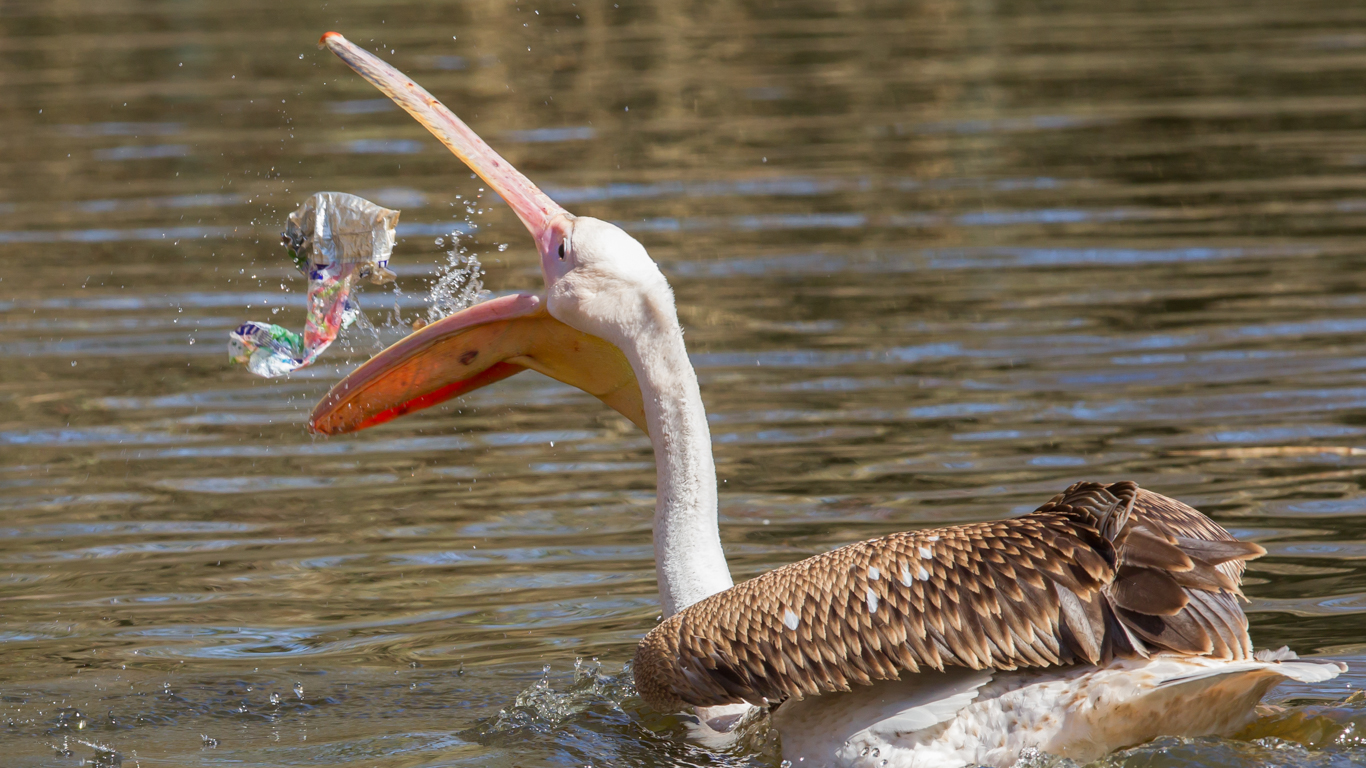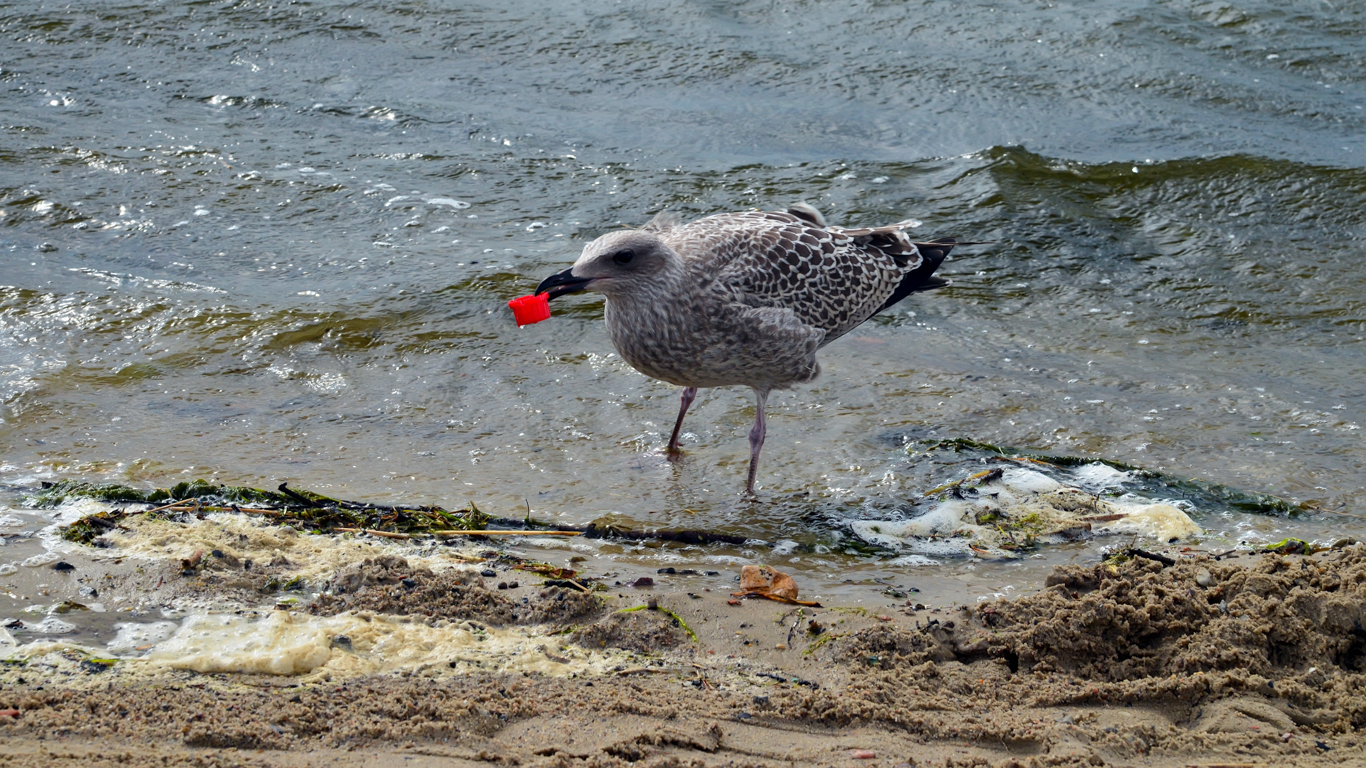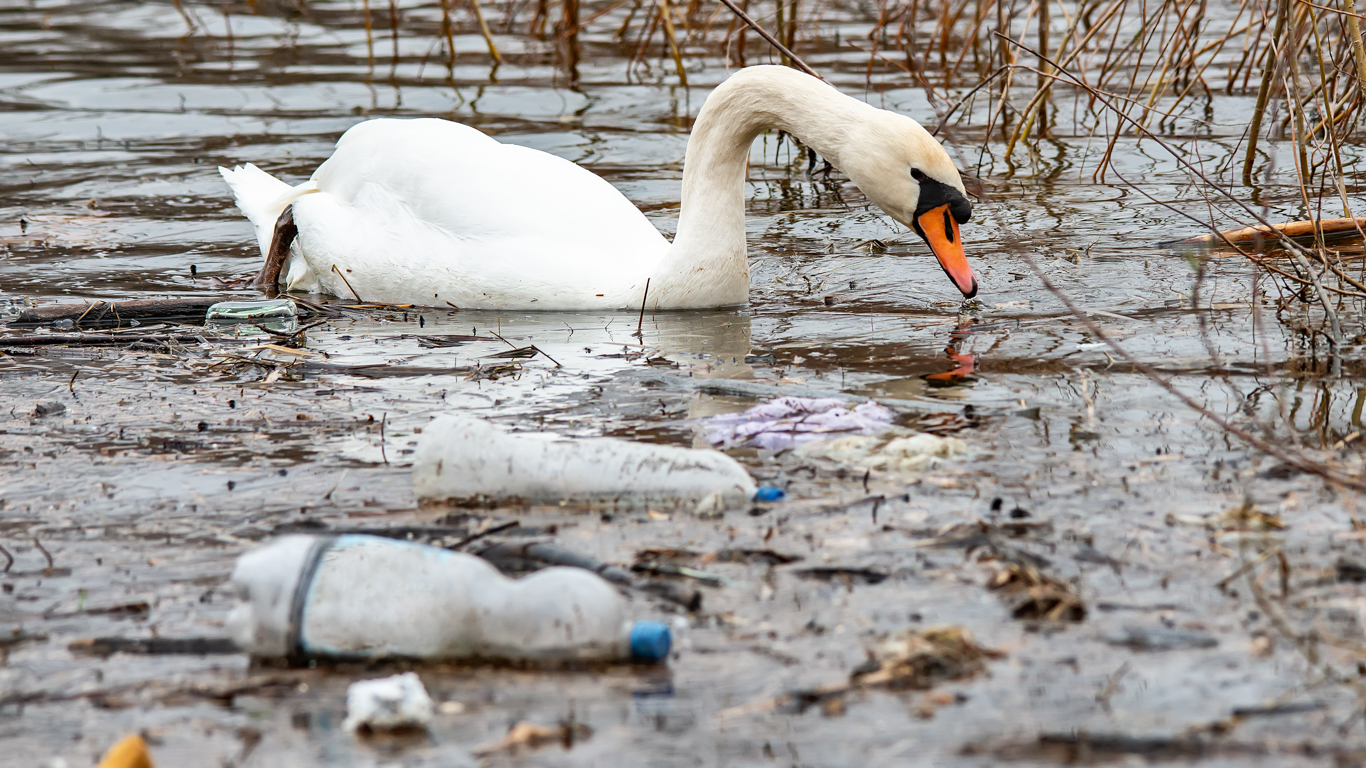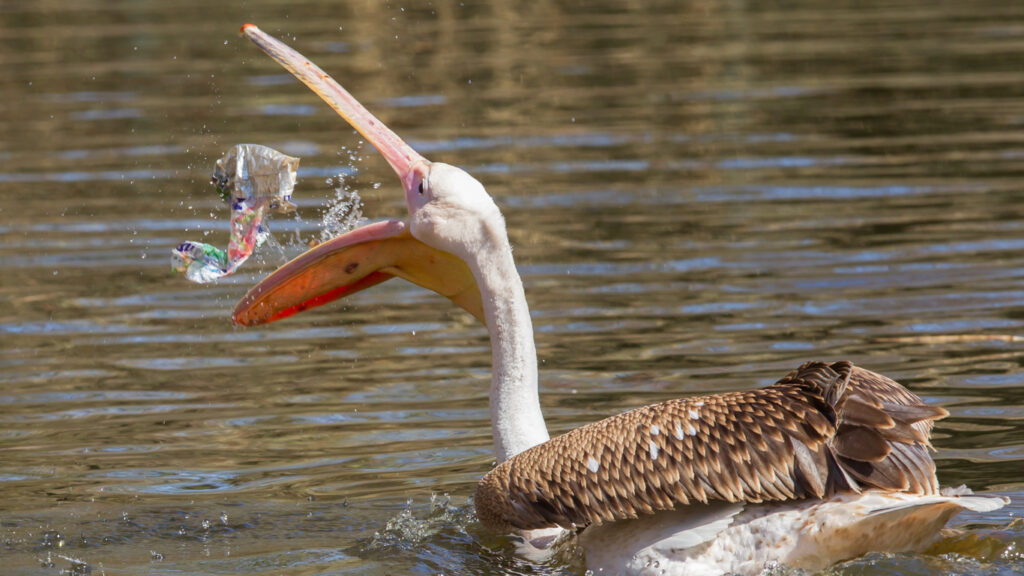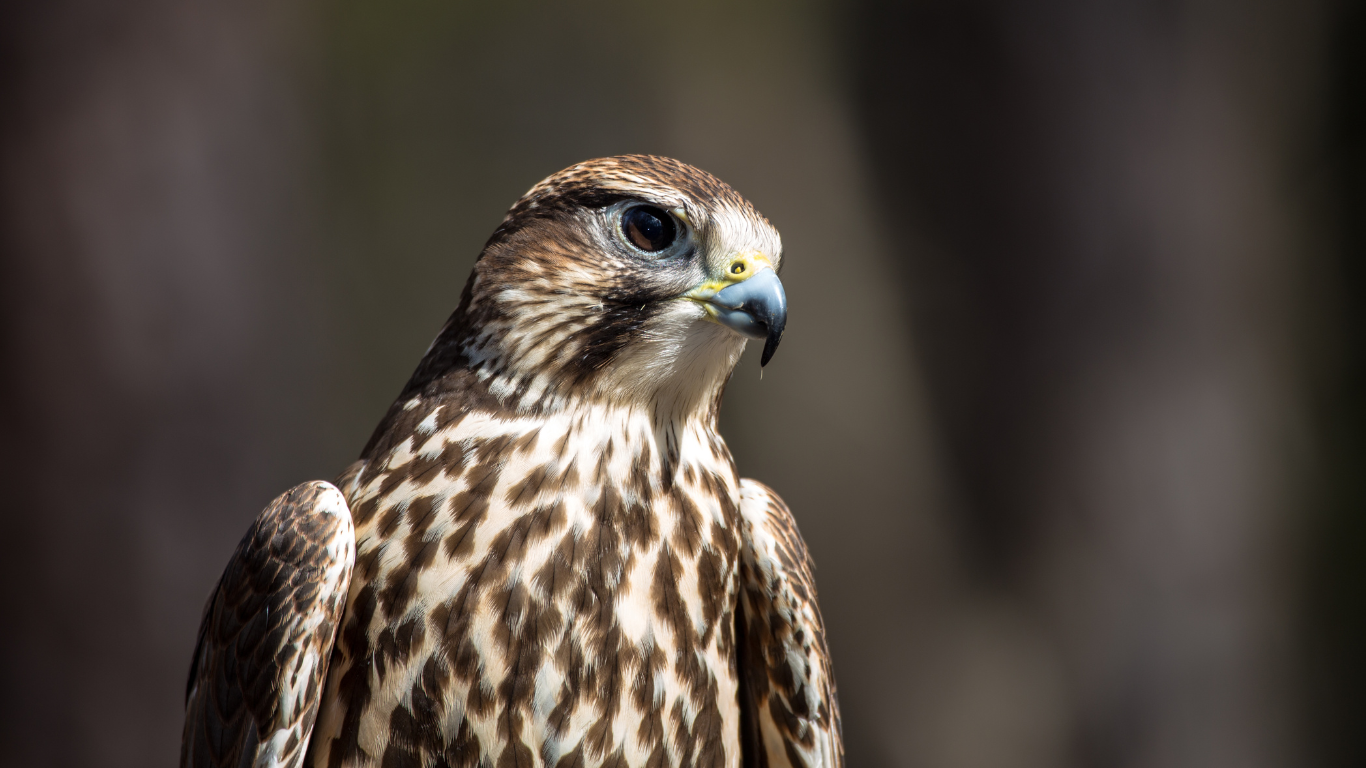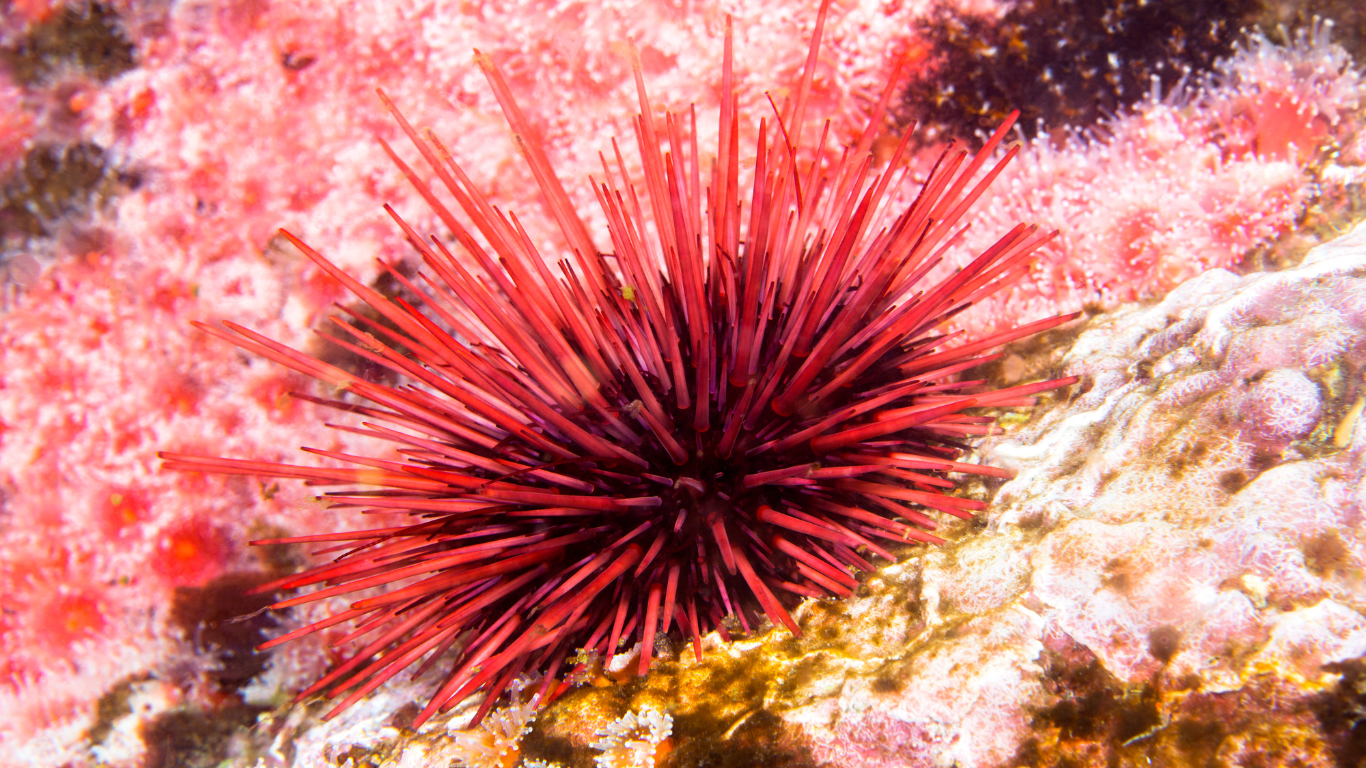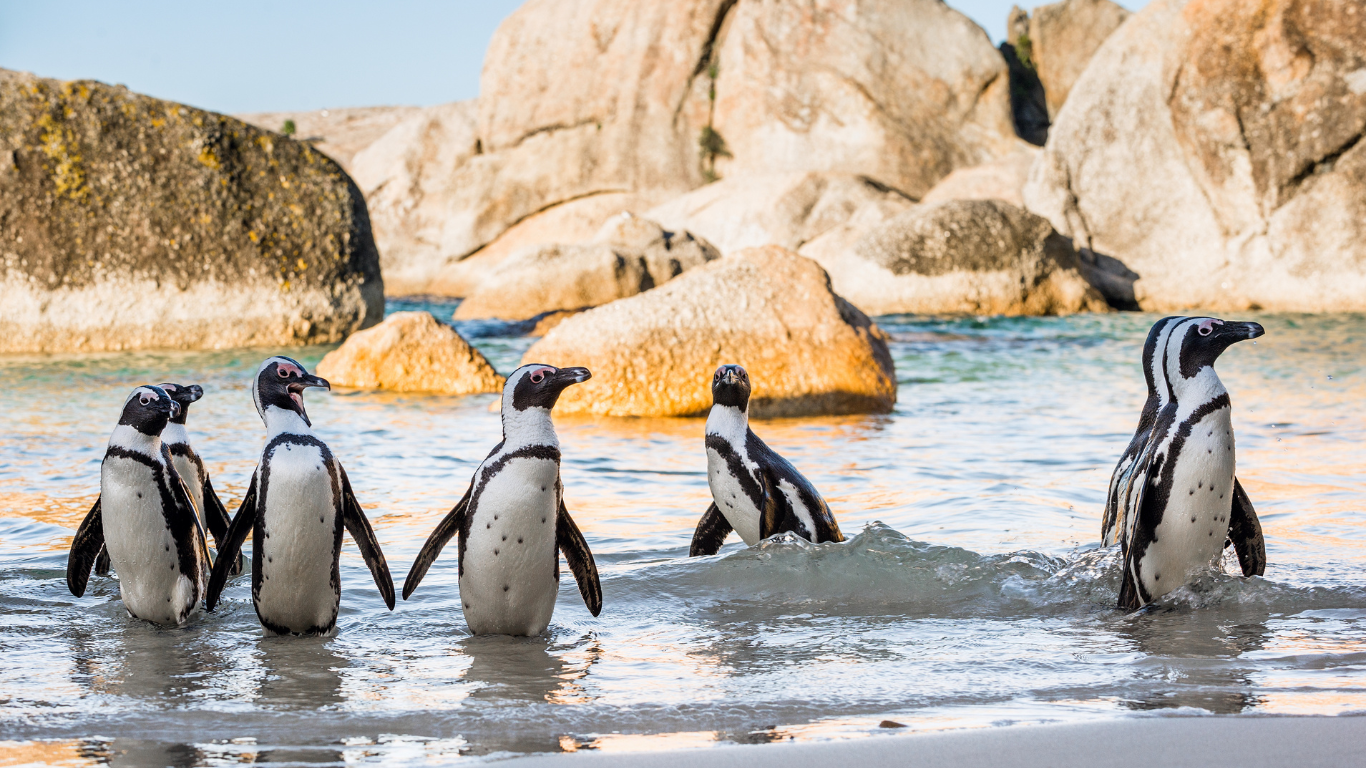Scientists have discovered a new disease in seabirds which is caused solely by plastics, reports The Guardian. Plasticosis scars the digestive tract of birds as a result of ingesting waste, according to researchers at London’s Natural History Museum.
This is the first recorded instance of specifically plastic-induced fibrosis in wild animals.
A study published in the Journal of Hazardous Materials said that plastic pollution is becoming so widespread that the scarring was prevalent across a range of birds of different ages. Alarmingly, it is thought that young birds with the disease contracted it as chicks when their parents inadvertently fed them plastic-filled food.
Scientists studied flesh-footed shearwaters from Australia’s Lord Howe Island to examine the relationship between the amounts of ingested plastic and the condition of the proventriculus, the first part of a bird’s stomach.
Plasticosis can lead to the gradual breakdown of tubular glands in the proventriculus. If birds lose these glands, they can become more vulnerable to infection and parasites, and it can affect their ability to digest food and absorb certain vitamins.
Scientists found that when birds ingest small pieces of plastic, their digestive tract becomes inflamed. Over time, this persistent inflammation causes tissue to become disfigured and scarred, affecting the birds’ growth, digestion and survival. The more plastic a bird had ingested, the more scarring it had.
The disease was given the name ‘plasticosis’ to make it clear that it is caused by plastic in the environment.
However, natural materials found in the birds’ stomachs, like pumice stones, did not result in the same issues, leading scientists to label this a plastic-induced disease.
“While these birds can look healthy on the outside, they’re not doing well on the inside,” said principal curator in charge of birds at the Natural History Museum, Dr Alex Bond. “This study is the first time that stomach tissue has been investigated in this way and shows that plastic consumption can cause serious damage to these birds’ digestive systems.”
Though scientists studied only one species of bird in a single part of the world, they believe it is likely that more species are affected – but more research is needed to discover just how widespread plasticosis is. However, researchers say exposure to plastic by all organisms is inevitable, due to increasing plastic emissions and plastic pollution – now prevalent in all environments on the planet.
“Further, the ingestion of plastic has far-reaching and severe consequences, many of which we are only just beginning to fully document and understand,” said Bond.
“Plastic pollution has become a global crisis that is rapidly worsening over time,” said David Barritt, executive director of Animal Survival International. “If we are to overcome it, governments need to reduce their own outputs and work together to put pressure on countries producing large amounts of plastic waste and not disposing of it responsibly. As individuals, we must also be mindful of our own plastic usage and follow the correct channels for recycling. It is an entirely solvable problem and we cannot allow it to claim the lives of our precious marine animals. Ultimately, it affects all ecosystems and us, too.”

